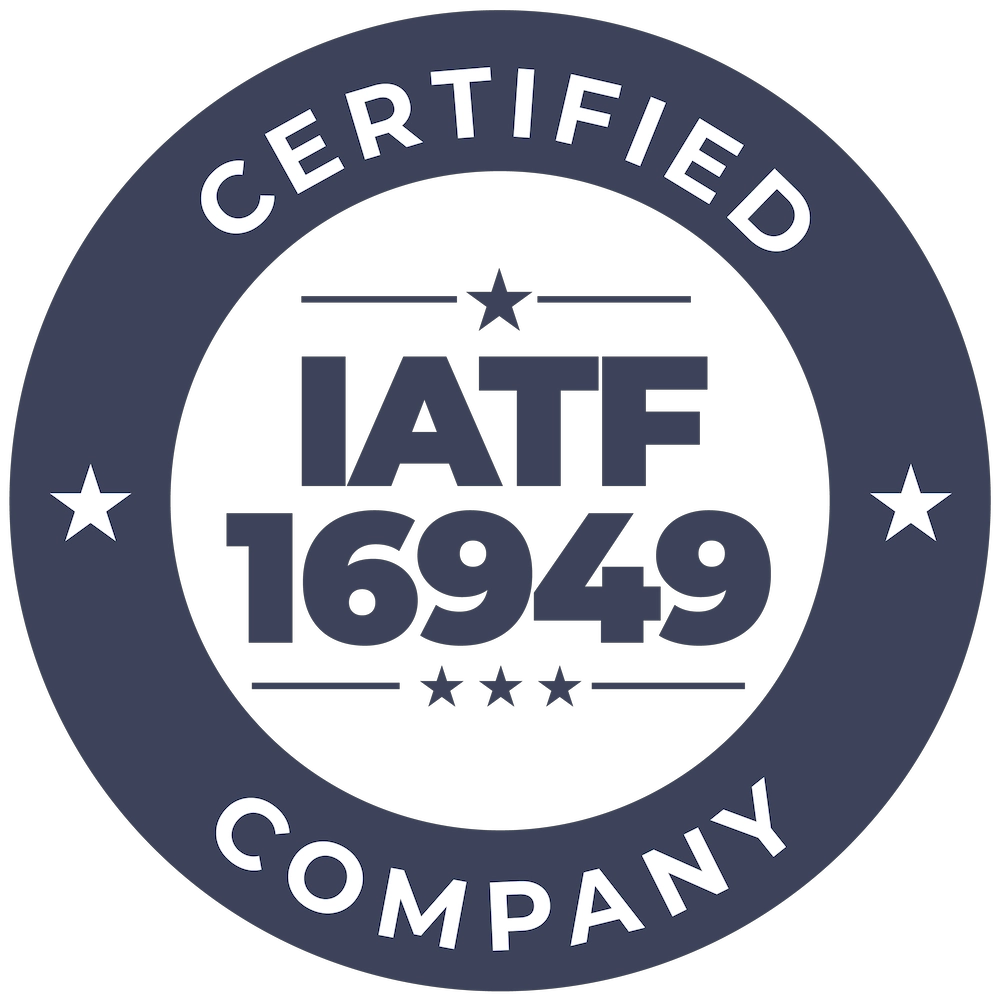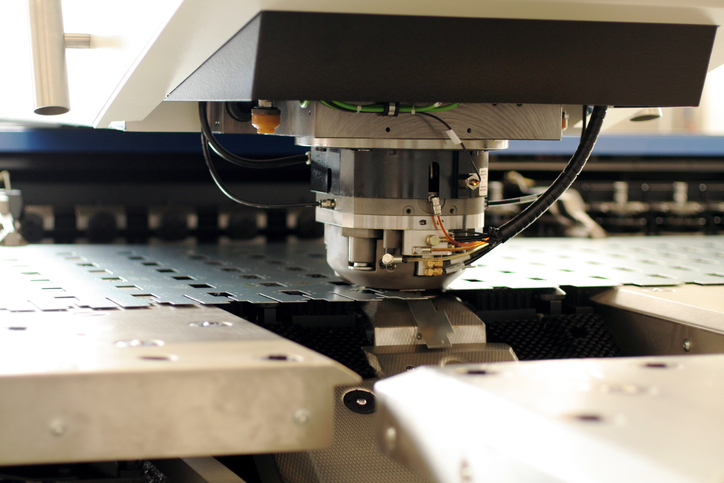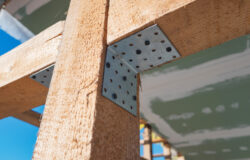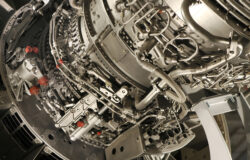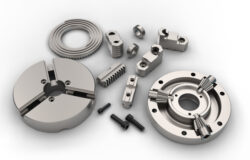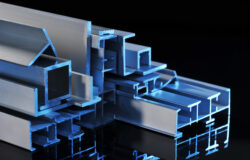As advancements in technology, AI, and automation continue to push medical devices to increasing levels of complexity and sophistication, the pressure is on metal manufacturers to keep pace. When it comes to medical stamping solutions, techniques and methods employed by manufacturers need to be able to produce intricate parts that meet the strictest requirements of the healthcare industry.
What Makes a Complex Medical Device Component?
Intricate designs, tight tolerances, and specific functionality are the hallmarks of a complex medical component and can include anything from implantable devices and surgical tools to diagnostic equipment and blood and infusion heating devices.
With advancements in medical device technology and the continuing development of AI-assisted research and design, this complexity is only expected to increase. For instance, small diagnostic devices in the shape of hard capsules that can be swallowed (called “insideables”) are already being refined and tested for use in monitoring and identifying health issues from inside a patient’s body. These developments will likely lead to a demand for higher levels of engineering, increased regulatory compliance, and, of course, more advanced precision manufacturing solutions.
Metal Stamping Processes for Complex Medical Components
Precision metal stamping will continue to play a crucial role in manufacturing critical medical components. Metals provide the strength, durability, electrical conductivity, and sterilizable surfaces necessary for healthcare applications. Additionally, when metal manufacturers combine the certainty of traditional methods with a forward-thinking approach to innovation, metal manufacturing remains to be one of the most cost-effective and efficient solutions for producing critical components for the medical industry.
Methods such as progressive die-stamping, transfer die stamping, deep drawing, and multi-side stamping are ideal for creating parts with intricate geometries, bends, and curves while ensuring repeatable precision and quality.
Tooling and Equipment for Medical Stamping
In order to achieve successful medical stamping for complex components, metal manufacturers rely heavily on customized tooling and advanced equipment such as:
- Precise Dies and Molds – Designing dies, molds, and components for optimum manufacturability enables metal stamping experts to tailor tooling to the specific requirements of any critical component.
- High-Speed Presses – Implementing high-speed presses with advanced control systems ensures accurate and repeatable stamping operations throughout a production run.
- Computer-Aided Processes – Utilizing advanced CAD and CAM software enables the optimization of tooling designs and the simulation of stamping processes for maximized efficiency.
Design Considerations for Successful Medical Stamping
When it comes to designing complex parts for manufacturability, the collaboration between engineers and medical stamping experts is key. Parts need to be able to fulfill their function while also lending themselves to accurate and repeatable manufacturing processes in order to streamline production, keep costs under control, and guarantee compliance and quality with every component.
Material selection, for example, is a major consideration during design. Matching the needs of the component with the characteristics of the metal alloy (such as strength, chemical resistance, and biocompatibility) requires in-depth knowledge of both metal materials and the functionality requirements of the application.
Additionally, the part needs to be designed to minimize complexity and incorporate the proper draft angles and radii in order to improve manufacturability and material flow and reduce the risk of defects.
Quality Assurance and Inspection
Finally, quality assurance and inspection are of the utmost importance during a medical stamping project. Manufacturers should have rigorous inspection and quality assurance procedures in place, including coordinate measuring machines (CMMs) and optical scanning to ensure that the stamped parts conform with the design specifications.
Work With Innovative Precision Machinists to Meet the Demands of Your Complex Medical Device
Just as technology advances in the medical industry, the methods and tools available to manufacturers continue to grow in refinement. With emerging trends in the integration of AI and machine learning, the use of advanced alloys, and the development of innovative tooling and machinery associated with Industry 4.0, new opportunities for original ideas and novel approaches to familiar problems will continue to surface.
It’s essential to partner with machinists for medical stamping projects who can combine the expertise of past experience with a commitment to forward-thinking approaches.
At OGS, we provide stamping, fabrication, and machining solutions for a range of industries, including medical, aerospace, transportation, and recreational & power sports. With our all-in-house capabilities and commitments to exceptional customer service and technological advancements, we’re uniquely positioned to meet the most stringent demands of any application.
Get in touch with our team today to learn more about our services or to request a free quote.

